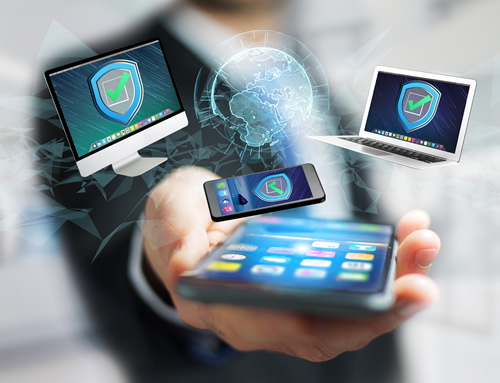All educators are lifelong learners, whether they’re figuring out how to incorporate the latest edtech device into their lessons or researching bios on NBA players to help a reluctant reader.
But while schools expect teachers to continue their education, most only get rewarded for getting an advanced degree like a master’s or a Ph.D. Now, organizations like Digital Promise have developed programs for educator micro-credentials, which recognize educators for acquiring new skills.
Related content: Take a peek at the research behind educator micro-credentials
During her presentation, “Measuring and Sustaining Professional Learning Through Micro-Credentials,” Odelia Younge, senior project director for educator micro-credentials at Digital Promise, explained the key elements of educator micro-credentials, how they work, and what differentiates them from other professional development.
Educators are engaged in everyday research to help their students, and much of it is informal: videos, mentors, reading, etc. The goal of educator micro-credentials, according to Younge, is to capture the educator demonstrating these skills and provide their schools with evidence of the professional learning. Micro-credentials have four main design traits.
● Competency-based—The goal is not just completion of the course; the educator must demonstrate they understand how to apply the skill.
● On-demand—Educators can work on the skill when they need it and where it’s convenient.
● Shareable—Educators should be able to share the micro-credential just like they would share other professional accomplishments. For example, Digital Promise provides digital badges users can share via social media.
● Personalized—Because the courses focus on more specific skills than a long-term seminar, educators are able to choose courses that meet their precise needs.
While not a traditional learning module, micro-credentials have several characteristics in common. First, the unit is developed around a clear learning goal. Second, the units are built on research-based methodologies and provide the educator with a curated list of resources for both learning the skill and for further reading. Finally, there are criteria for how the user can demonstrate mastery of the skill and how to submit the evidence, as well as a rubric for assessment. In the Digital Promise ecosystem, evidence of mastery could include a project or lesson plan with evaluation guides or scoring rubrics; student work samples; or text, audio, or video of a classroom interaction.
Of course, one way that micro-credentials differentiate themselves from other informal learning is that the educator must demonstrate the skill. Younge feels, though, that they have several other benefits. To start, many micro-credentials are stackable. Instead of a one-and-done session, providers may offer several units on one topic that develop different skills. Next, because the teachers are required to demonstrate the skill, they are more likely to continue implementing it in the classroom. Thus, schools may look more favorably on this type of professional development. Moreover, most micro-credential programs offer feedback on the teachers’ submissions, so the teachers have the opportunity for continued growth in the skill. Finally, some schools have begun offering financial incentives for completing micro-credentials.
Most importantly, micro-credentials allow schools to provide educators with more effective options for professional development.
“We’ve seen many times that [with] professional development…a lot of people are not satisfied with their ability to take that and apply it to their classroom,” says Younge.
About the presenter
Odelia Younge is the senior project director for educator micro-credentials at Digital Promise, leading work on personalized, competency-based professional learning through micro-credentials. Odelia is an equity champion and practitioner and dreams of new ways to bring about the promises of education.
About the host
At Digital Promise, Sierra Noakes leads collaborative, research-based projects driven by authentic needs. By co-designing systemic improvements to the edtech marketplace with key stakeholders, such as education leaders and educators, Sierra hopes to infuse research into edtech product design and help educators make edtech decisions based on classroom needs. Prior to joining Digital Promise, Sierra was an educator and curriculum coordinator for the Brooklyn Autism Center and received her M.Ed. from the Harvard Graduate School of Education. You can reach Sierra at sierra@digitalpromise.org.
Join the community
Research and Evidence in Edtech is a free professional learning community on edWeb.net that brings together researchers, educators, and product developers to share best practices related to edtech research and evaluation.
This edWeb broadcast was sponsored by Digital Promise. The recording of the edWebinar can be viewed by anyone here.
- 4 ways to encourage play in education - April 25, 2024
- CoSN IT Leader Spotlight: Lisa Higgins - April 25, 2024
- It’s time to pay student teachers - April 25, 2024

